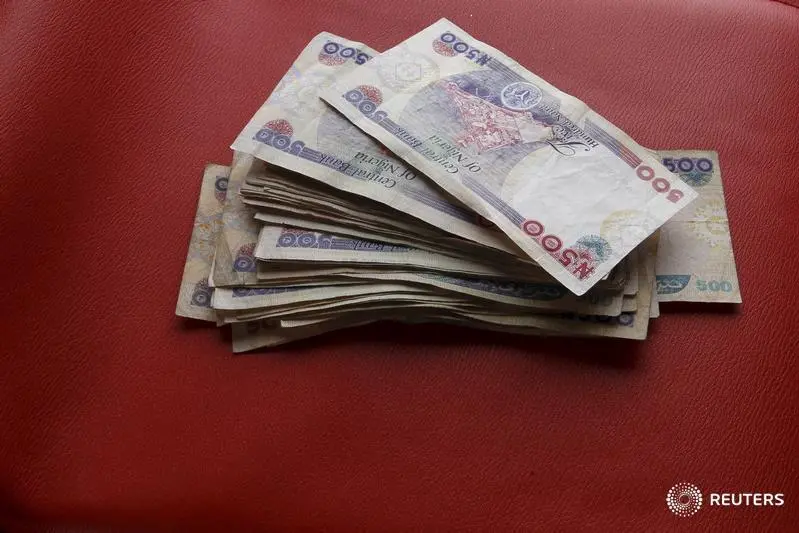PHOTO
Nigeria will outlaw street-trading of foreign currency in the country under new regulations set out by the central bank which also stipulate higher minimum capital levels for bureau de change operators.
The central bank issued the guidelines in a document published late on Friday but did not say when they would come into effect.
The moves are part of broader reforms to Nigeria's currency market, which has suffered chronic dollar shortages after foreign investors fled following a previous oil price collapse and introduction of capital controls in 2015.
Hard currency is sold on the streets in the business districts of Lagos and Abuja by individuals or agents of bureaus de change officials who operate outside offices to cut down operating costs.
The central bank said in its guidelines that bureau de change operators will be required to have at least 2 billion naira ($1.28 million) in capital in order to be national operators, up from 35 million naira currently.
Exchange bureaus operating regionally will be required to have a minimum capital of 500 million naira.
Under the new regulations, individuals will not be able to take out more than $500 in hard currency in cash at a time, as higher amounts will need to be settled through the bank.
The bank will end a two-day policy meeting on Tuesday with analysts expecting it to lift interest rates by 225 basis points to 21.00%. It is Governor Olayemi Cardoso's first meeting since he took office in September.
On Monday, the naira firmed to 1,550 per dollar on the parallel market, a similar level to on the official market, from 1,800 naira a week earlier.
The naira's official exchange rate has been trading at levels close to the parallel market level after the currency was devalued last month, its second adjustment in less than a year as the crippling dollar shortage pushed the Nigerian currency lower.
The anti-graft agency raided bureau de change operators in Abuja on Friday and over the weekend, and held some officials. The agency has in the past accused operators of speculating on the currency.
The Economic and Financial Crimes Commission did not respond to a request for comment.
Under the new guidelines, the central bank capped the amount and frequency of purchases by individuals seeking foreign currency for travel, school fees and hospital bills.
($1 = 1,560.00 naira)
(Additional reporting by Camillus Eboh and Felix Onuah; Editing by Susan Fenton)




















